Introduction
The Kenya Film Classification Board (KFCB) has invited public comments on its draft framework on the regulation of distribution and exhibition of content in Kenya (the “Framework”). KFCB is established under the Film and Stage Plays Act (Cap 222) to regulate the creation, broadcasting, possession, distribution and exhibition of films in Kenya.
The proposed Framework will apply to entities engaged in exhibition and distribution of audio-visual content to the Kenyan public. These entities (together the “content distributors”) are envisioned to include broadcasters, Video-on-Demand Services (VODs), Over-the-Top Services (OTTs), and digital content creators, distributors, exhibitors and aggregators with a significant number of followers, subscribers, viewership and output of content in Kenya. Under the Framework, content distributors with a physical presence in the country will be treated as operating in Kenya.
The Co-regulation Framework
The Framework proposes a three-tier regulation structure as follows:
- Level I – self classification panel constituted by the content distributor;
- Level II – co-regulation classification panel jointly constituted by the content distributor and KFCB; and
- Level III – KFCB classification panel.
We review the different levels below.
Level I – Self-Classification Panel
KFCB is cognizant that it may not have the capacity to classify all content that is distributed and exhibited locally. To put this in context, research by Hootsuite published in January 2021, showed that Kenyans spent an average of 40 minutes on YouTube and made a total of 22.5 million visits to the site. Obviously, this would present a challenge if KFCB were to insist on classifying all audio-visual content on its own.
Accordingly, content distributors will be allowed to set-up their own panels for classification of content which will be responsible for:
- Classification of 70% of the entity’s content before broadcasting, exhibition or distribution;
- Submitting 30% of all classifiable content for classification by KFCB; and
- Submitting to KFCB a report on classification of that entity’s classifiable content on a quarterly basis.
Level II – Co-Regulation Classification Panel
This panel will be constituted between KFCB and the content distributer on a need basis and will be responsible for:
- Reviewing progress, monitoring compliance and giving feedback on the self-classification process, complaints and resolutions;
- Monitoring and ensuring the entity’s adherence to the Film Classification Guidelines issued by KFCB;
- Addressing any non-compliance issues raised but not resolved within five (5) days; and
- Addressing public complaints against any content classification guidelines.
Level III – KFCB Classification Panel
KFCB shall constitute this panel which will be responsible for:
- Classifying the 30% classifiable content to be submitted to KFCB by content distributors;
- Randomly sampling the 70% content classified by the self-classification panel, to monitor their adherence to the Film Classification Guidelines; and
- Maintaining a catalogue of co-regulating entities.
Other Highlights
The Framework will not apply to advertisements, music videos and other non-program matters.
Classification of content will be done in compliance with the Film Classification Guidelines issued by KFCB.
No content distributor will be allowed to exhibit any content which is prohibited under any Kenyan law or by a court of competent authority.
KFCB will have discretion on the choice and nature of content to be submitted for classification by the KFCB Classification Panel.
Under the Framework, content distributors will also be required to:
- establish a dedicated online communication channel with KFCB for resolving complaints;
- develop or enhance their existing complaints handling mechanism to incorporate the provisions of the Framework;
- ensure periodic training and certification of the self-classification panel members by KFCB;
- keep a record of content broadcasted, exhibited or distributed by it for a minimum period of 60 days and, make these records available for inspection by KFCB upon lawful request; and
- make true and full disclosure of all grievances received regarding content classification, how they were addressed (including any action taken) and the response sent to the complainant.
Conclusion
Regulation of Over-the-Top and Video-on-Demand services in Kenya has posed a challenge. The current regulatory framework was put in place before such services existed. Accordingly, it only focused on regulation of broadcasters and mainstream content distributors. The Framework, if approved, will provide clarity on how such entities are to operate in Kenya. We also expect it will ease compliance concerns since it will allow internal classification of 70% of the content on such platforms.
Click to Download
DISCLAIMER:
This briefing is a highlight of legislative and policy changes and is intended to be of general use only. It is not intended to create an advocate-client relationship between the sender and the receiver. It does not constitute legal advice or a legal opinion. You should not act or rely on any information contained in this legal update without first seeking the advice of an advocate.


